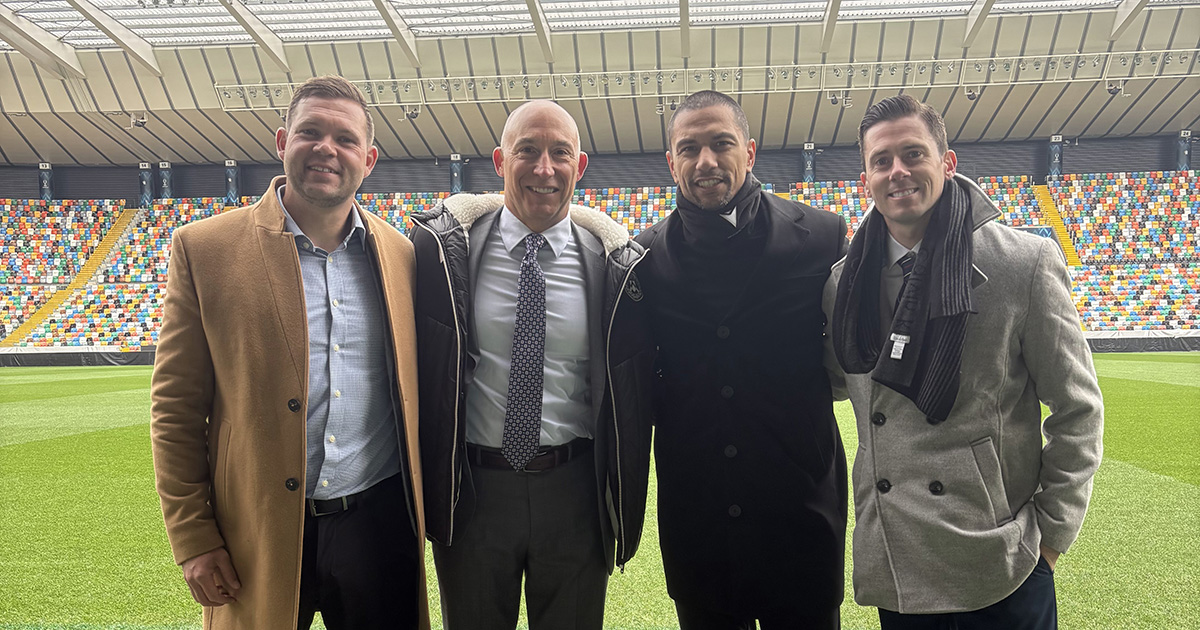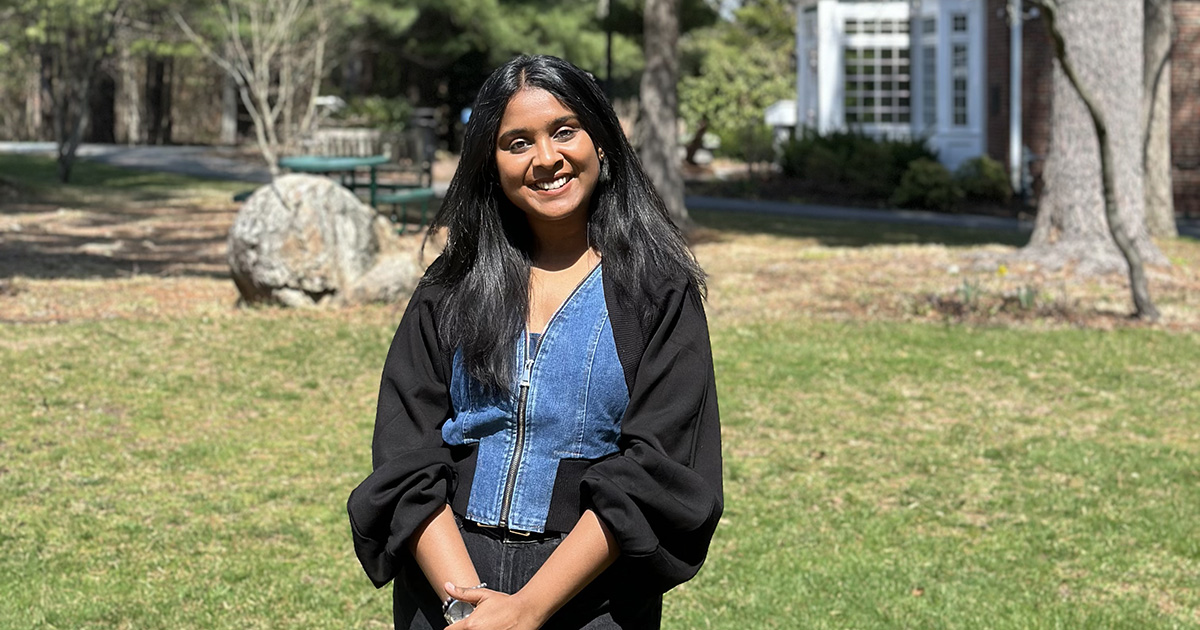Bulgarians Learn Leadership Through Collaboration at Babson
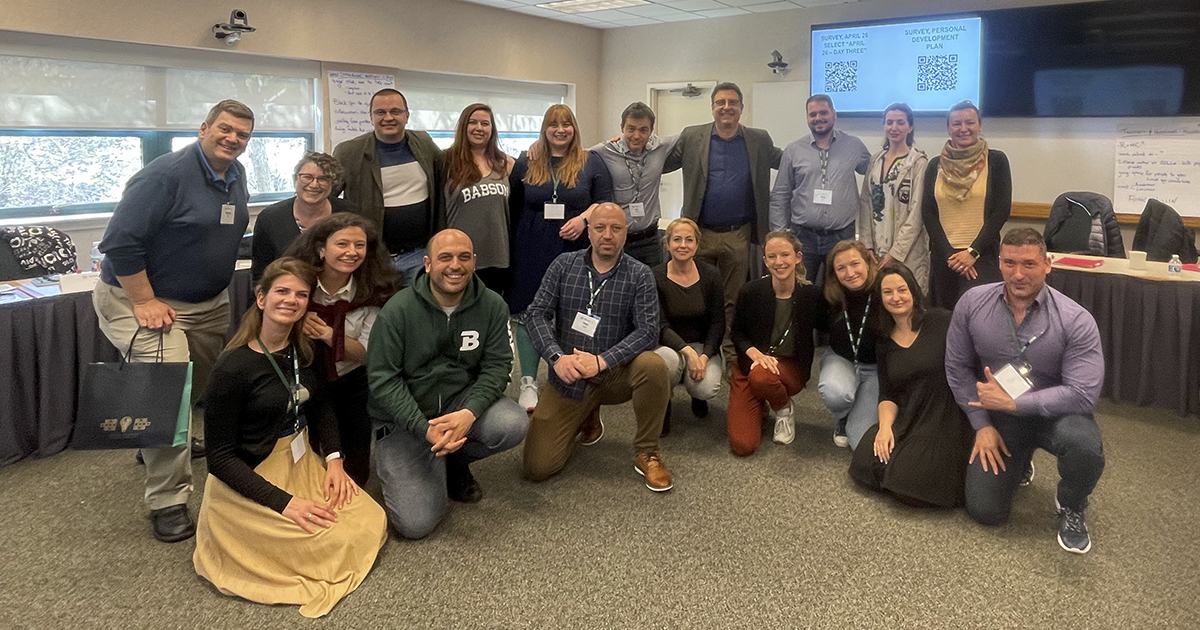
Ana Alexieva, a program director at a nonprofit organization in Bulgaria, figured she’d sharpen her professional skills and explore new leadership abilities when she applied for a two-week program at Babson College.
But the exposure to innovative thought leadership and the close bonds she formed with her fellow Bulgarians took her experience to a whole new level.
“The program was life-changing,” Alexieva said. “The opportunity to experience a bit of American culture along with the academic programming was a great combination.”
Alexieva was one of 15 Bulgarians chosen to come to the College’s Wellesley campus as part of Babson’s Accelerator for Growth, Innovation, & Entrepreneurial Leadership program (B-AGILE). B-AGILE provides customizable lessons in leadership and entrepreneurship for lifelong learners around the world, allowing organizations in government, nonprofit, or private sectors to pick out the courses they need at a time that works for them.
The 14-day leadership course created for the group of professional managers from Bulgaria represented the first international application of Babson’s new B-AGILE program.
“It was so intensive in terms of knowledge accumulation,” Alexieva said. “It’s not only the knowledge, it’s the way of teaching and learning happening here at Babson. It’s a completely different culture of education than what we have in Bulgaria.”
All 15 attendees were sponsored by the America for Bulgaria Foundation (ABF), which is focused on strengthening the Eastern European country’s private and nonprofit sectors and related democratic institutions. The ABF partners with institutions, communities, non-governmental organizations and visionary leaders that champion economic freedom, the rule of law, and entrepreneurship as the building blocks for a thriving economy and democracy.
The attendees, a mix of professionals working in nonprofit, private, and government sectors, competed against more than 400 applicants to take part in the program.
Georgi Kadrev, co-founder and CEO at Kelvin Health, was most surprised by the relationships he formed during the two-week training.
“We built a very strong bond during this trip, and I realized how important it is to have different mindsets and different backgrounds involved in problem solving,” Kadrev said. Once named to Forbes Bulgaria’s “30 over 30” list, Kadrev spent his career in information technology.
“I realized that in other sectors there are a lot of smart, bright, enthusiastic, and positively motivated people, and I know that because of the way this program was designed,” Kadrev said.
Leading Through Collaboration
Babson already had worked with the ABF on entrepreneurship training when the organization began considering a new program to build leadership skills last year, said Violeta Nedeva, business and entrepreneurship program director at ABF.
“At the end of the day, it’s leaders that we’ll need to implement change, no matter what industry they’re in,” Nedeva said. “We also liked Babson’s focus on creating social value while creating economic value.”
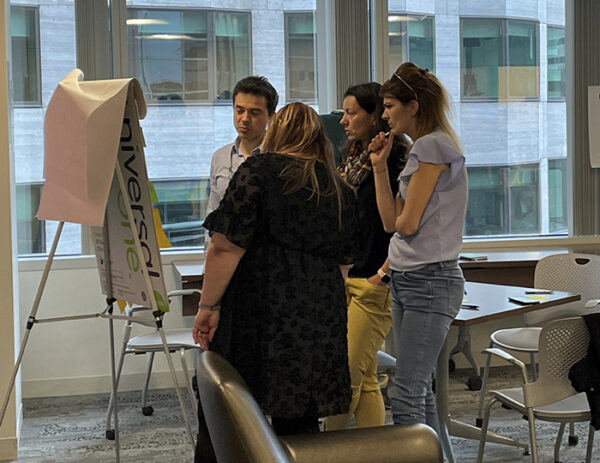
Bulgarian professionals brainstorm as part of Babson’s B-AGILE program, which teaches innovation and entrepreneurial leadership.
Another aspect of the program was to expose participants to the different kinds of living, learning, and cultures in America.
“The first difference that I noticed was the way of teaching, because it’s different from the universities in Bulgaria,” Nedeva said. “Everything is much more practical here and involves the participants as they learn the lesson. The attitude is that you don’t have a teacher but rather someone who facilitates your learning, which is great because once they help you through the process and you come to the conclusions, the lesson sticks.”
The ABF was created in 2008 to bolster friendly ties between Bulgaria and America by partnering with companies, institutions, and nonprofit organizations that champion economic freedom. It was formed and funded by the Bulgarian-American Enterprise Fund—an investment fund created by the U.S. Congress shortly after Bulgaria rejected communism and became a parliamentary democracy in 1990.
Kim Sawyer, an adjunct lecturer of management and a special advisor of international corporate strategic engagement at Babson, customized the B-AGILE experience to ensure the participants were exposed to multiple approaches to leadership development, democracy, and American culture. Not only did participants visit key landmarks such as the Statue of Liberty and the John F. Kennedy Presidential Library and Museum, but the classes were experiential and offered new ideas on how to lead.
“It was so powerful learning about working together in order to make a bigger, more meaningful impact.”
Lyubomira Vutkova, a Bulgarian professional who took Babson's B-AGILE leadership program
“I created a program that was very much focused on developing leadership skills through collaboration,” Sawyer said. “Because of my experience in Europe and the work I did with women entrepreneurs in Portugal, I have insight into the needs of emerging leaders in a post socialist country and the difference between the way Europe and America perceive and implement the entrepreneurship mindset, social impact, and philanthropy.
Lyubomira Vutkova, a manager at Lufthansa Technik Sofia, said the program challenged her notions of leadership and success.
“It was so powerful learning about working together in order to make a bigger, more meaningful impact,” Vutkova said. “One person could have the greatest idea, but it’s much harder to implement that idea alone.”
A Better Future
Bulgaria is a country that is only slightly larger than the state of Tennessee, and Kadrev, as well as other participants, expressed surprise and enthusiasm about the variety of people and positions represented during Babson’s leadership program.
“I’m pretty well connected in Bulgaria, especially in the IT sphere, and I thought I knew all the smart people, as arrogant as that sounds,” Kadrev said. “But, this group has been the most diverse and well-selected group of motivated people.”
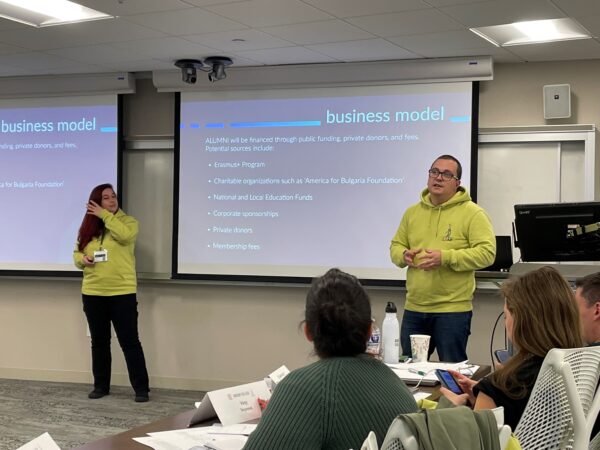
Professionals from private, non-profit, and government sectors in Bulgaria came to Babson College as part of B-AGILE’s leadership classes.
The variety was by design and dovetailed with the focus on collaboration, said Nadeva, who screened hundreds of applications during the selection process.
“It’s a very diverse group of successful people throughout the country,” Nadeva said. “We know most of the active players in Bulgaria, but still we were able to reach individuals with whom we hadn’t crossed paths. That was actually what we were hoping for because we need these partnerships. We need collaboration across the sectors.”
Vutkova vividly remembers the day that ABF officially announced the program’s participants.
First, she looked for her own name, and once she found it, she studied the other names to see if she knew them.
“I saw the other people on the list, and I didn’t know anybody, which was the most amazing thing,” Vutkova said. “The program directors and the lecturers put together this transformative program for all of us, and I hope to connect with them afterward to continue to collaborate and move forward to make a better future for our country.”

